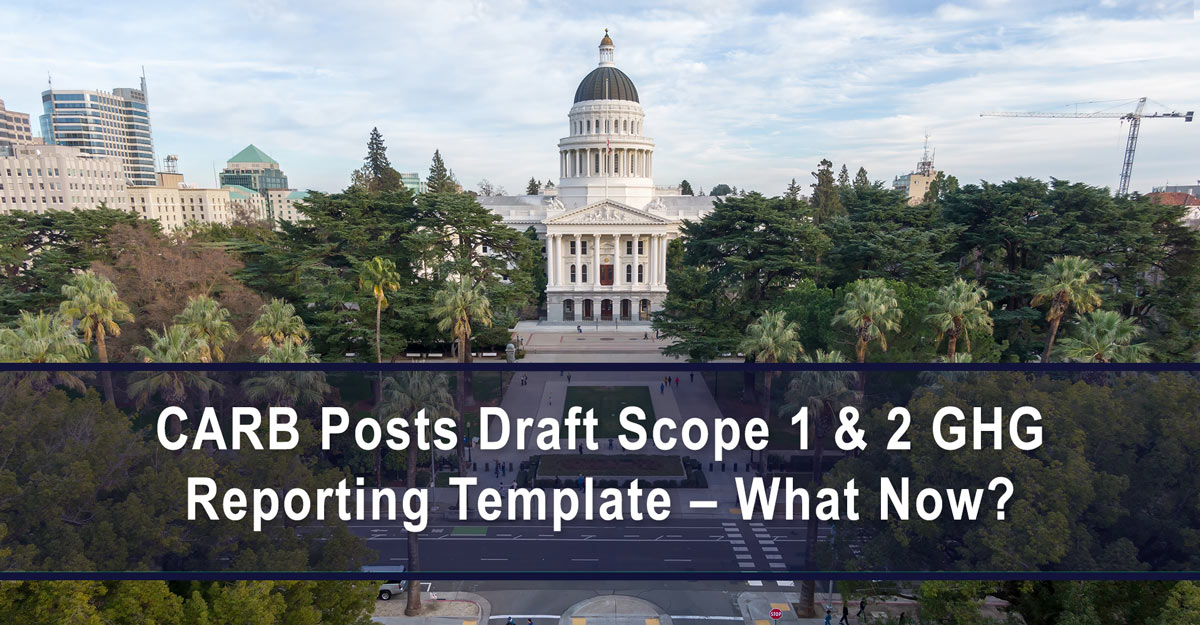
Refresh on SB 253
California's Climate Corporate Data Accountability Act (SB 253) requires U.S. companies doing business in California with annual revenues exceeding $1 billion to publicly disclose their greenhouse gas emissions. The law mandates scope 1 and scope 2 emissions reporting starting in 2026, with scope 3 disclosures required in 2027. All reported emissions must undergo third-party assurance, beginning with limited assurance, with reasonable assurance required for scopes 1 and 2 beginning in 2030.
CARB's Draft Template: Key Highlights
On October 10th, CARB released its draft scope 1 and scope 2 reporting template for public feedback through October 27, 2025. The template can be found here. While voluntary for the 2026 reporting cycle, the template provides critical insight into California's approach to operationalizing SB 253.
The template is structured around six core sections: Organization Information, Third-Party Verification, Inventory Boundary, Scope 1 and Scope 2 Disclosure, Methodology, and De Minimis Sources.
Notably, it emphasizes decision-useful disclosure by requiring intensity metrics, industry classification via NAICS codes, and transparency in emission factors and reporting across the six GHGs: CO2, CH4, N2O, HFC, PFC, and SF6.
CARB is specifically seeking stakeholder input on three critical design choices:
- Disclosure by Source vs. by Gas: The template proposes organizing emissions by source (electricity, fuel use, refrigerants) with optional GHG-type detail.
- Organizational Boundaries: CARB is evaluating whether to allow companies to choose between equity share, financial control, or operational control approaches, or mandate a single methodology for consistency.
- Emission Reduction Initiatives: The template includes fields for renewable electricity and gas contracts, with CARB seeking input on other reduction initiatives that should be captured.
Practical No-Regret Actions for In-Scope Companies
CARB is requiring a level of detail that goes beyond what most organizations currently track. Not sure where to start? There are several no-regret steps covered companies can take to prepare.
- Review the template: Examine your data collection infrastructure and identify gaps in emission tracking, activity data, and documentation well before the verification stage begins.
- Refresh your organizational and operational boundaries: Understand the entities you must include in your FY2025 GHG inventory, along with the sources of emissions. See our in-depth article on this subject.
- Update your emission factors. Before starting your FY2025 inventory, ensure your factors are up-to-date and implement controls to ensure consistency across reporting years.
- Build your verification timeline: The proposed June 30, 2026 deadline leaves limited runway. Carry out a pre-assurance exercise and evaluate reporting and assurance providers now.
How FSI Can Help
Need a hand preparing for SB 253? Let’s talk.
Full Scope Insights provides fit-for-purpose fractional sustainability program management services. We specialize in developing and executing value-add sustainability strategies for public and private organizations in a cost-efficient manner.
Our scope 1, scope 2 and scope 3 GHG emissions accounting leverages partnerships with technology providers that use API integrations to seamlessly read and analyze energy data, streamlining the inventory process. Our team of experts possesses the GHG audit experience necessary to produce quality inventories that exceed stakeholder expectations.
Ethan Krohn,
Senior Associate
Full Scope Insights
